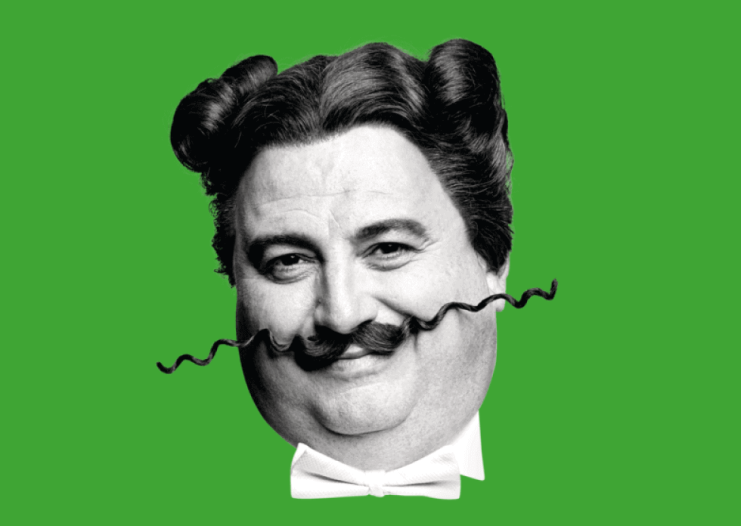Screenshot: Is price comparison the Future of publishing?

A weekly column from City A.M. bringing you all the biggest stories and trends in technology, media and telecoms
This week
**Media Moment of the Week: A baking bonanza
**Future’s flirtation with Go Compare: Insane or inspired?
**Baby boomer radio beats
Media Moment of the Week
For many of us, The Great British Bake Off has provided some much-needed wholesome goodness in recent weeks, but it’s also been a recipe for success for Channel 4. The final of the culinary competition racked up an average of 9.2m viewers on Tuesday night, smashing the broadcaster’s rating records.

It’ll come as a major boost to Channel 4, which unveiled its new strategy this week amid a review into the future of public service broadcasters and calls for privatisation. The company said it would double down on streaming and concentrate on its trademark “noisy and unruly” content. Not exactly how I’d describe Bake Off…
Future and Go Compare: Insane or inspired?
Investors in Future have had rather a comfortable ride in recent years. Under the stewardship of chief executive Zillah Byng-Thorne, the specialist magazine publisher has seen its market value skyrocket to £1.9bn, with shares trebling in 2019 alone. Against the backdrop of a wider structural decline in publishing, the performance is nothing short of miraculous.
But shareholders were rudely awakened from their reveries this week when the Country Life and Four Four Two owner announced it was buying Go Compare for a moustache whisker under £600m.
News of an acquisition would hardly have been surprising — it will be the fifteenth in the last five years under Byng-Thorne. But the decision to target a price comparison website has left most dumbfounded (one analyst called it “baffling”), and shares tumbled almost 18 per cent.
So why has Future got its eyes on a website best known for its irritating opera-singing TV mascot? Strip away the indecipherable corporate jargon, and the answer appears to be ecommerce. The publisher is already generating significant income from affiliate marketing, where it earns a commission by linking to products in its articles. So on the face of it, there is some overlap with Go Compare’s business model, which compares rival deals and takes a commission on any purchases.
But Future is somewhat hazy on the details. How, for example, will its portfolio of niche hobbyist titles such as Cycling Weekly and Practical Caravan chime with Go Compare’s focus on insurance, energy provision and loans?
Then there’s the question of Byng-Thorne’s position on the board of GoCo, the price comparison site’s parent company. Future insisted its chief executive was not involved in the acquisition, but the connection will undoubtedly raise eyebrows in the City.
Under Byng-Thorne, Future has an impressive track record of snapping up niche titles with loyal followings, mastering their shift to digital and squeezing additional revenue from affiliate links. Critics think the acquisition of Go Compare is a red herring that will tarnish the publisher’s sparkling run of form.
But, if the platform is integrated well, it could just be a stroke of genius. With little indication of how exactly the marriage will work, for now it’s a case of wait and see.
Boomer radio beats
There were big moves in the radio world this week, as two industry veterans unveiled plans to launch a new station aimed at baby boomers. Boom Radio, which will hit the airwaves early next year, promises a mix of classics from across the decades (think Tom Jones, The Beatles and Abba) as well as light chat shows.
Cringe-inducing name aside, Boom Radio is a smart move. There’s a clear gap in the market for the 14m or so Brits aged 55 and older who feel underserved by the current offerings. Radio 2 would be the natural incumbent for this demographic but, as Boom Radio founder Phil Riley tells me, this is “relentlessly being dragged younger” as the BBC desperately tries to win over younger audiences. On the commercial side there are the decade stations from Absolute, but these have a far more limited offering.
What’s interesting, too, is what the launch shows about shifting wealth in Britain. The over-60s generation has traditionally been unattractive to advertisers on the basis that its denizens are less brand-conscious and have less disposable income. But media executives now see an opportunity to cash in on an overlooked audience.
Boom Radio has expertise on its side. As chief executive of Chrysalis Radio, Riley masterminded the launch of Heart FM before overseeing the group’s sale to Global in 2007. Co-founder David Lloyd has four decades’ experience as a presenter and executive at stations including LBC and Virgin. The successful launch of Times Radio earlier this year also tells us there’s an appetite for fresh stations in the market.
But Boom Radio has no existing audience or brand, so it will need a big marketing push to get it over the line. Riley tells me he’s got some attention-grabbing stunts linked up for the new year, so watch this space…
The algorithm recommends
- Salesforce is reportedly in talks to buy Slack, in what would be one of the largest (and most 2020) software deals ever.
- Before all the misery, British TV was having a pretty good time. Exports hit a record high of £1.48bn in the year to March, driven by the success of dramas such as Chernobyl.
- ICYMI: Penguin Random House owner Bertelsmann sealed the Simon & Schuster deal for $2.2bn. But will it survive antitrust scrutiny?
Got a story? Drop me a line at james.warrington@cityam.com or on Twitter